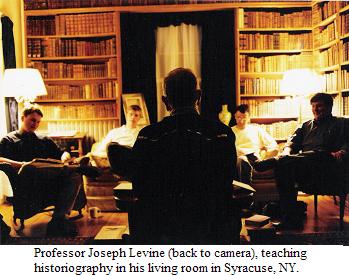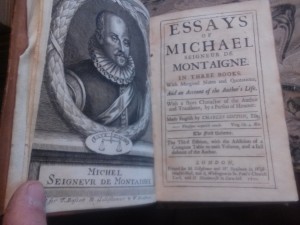- Facebook254
- Total 254
The Common Core is a powerful reform movement in education. State standards are regulatory documents that prescribe the expected outcomes, the content, and (to some extent) the pedagogy used in our public schools. The forty-five states that have adopted the Common Core are revising their standards for mathematics and English/language arts with the goal of making them more coherent, more demanding, and more similar across the states.
Since the Common Core is about math and English, not other subjects, I and many colleagues have written a voluntary framework for states to revise their social studies standards, the College, Career, and Civic Life (C3) Framework. But some thoughtful and well-informed people believe that the Common Core itself provides sufficient impetus for strengthening the social studies. I have heard that argument made by the social studies coordinator of a very large urban school system, the lobbyist for the main teacher’s union in a major state, and others. They point to valuable provisions in the Common Core’s English/language arts standards. For example:
- The Common Core includes standards for speaking and listening that encourage deliberation, which is a fundamental democratic skill. “CCSS.ELA-Literacy.SL.11-12.1b Work with peers to promote civil, democratic discussions and decision-making, set clear goals and deadlines, and establish individual roles as needed.”
- The Common Core is not a curriculum, and it does not prescribe content, but it frequently uses classic civics texts as illustrative examples. “CCSS.ELA-Literacy.RH.11-12.4 Determine the meaning of words and phrases as they are used in a text, including analyzing how an author uses and refines the meaning of a key term over the course of a text (e.g., how Madison defines faction in Federalist No. 10).”
- Again, although the Common Core generally avoids mentioning specific texts and assignments, it gives explicit attention to “seminal U.S. texts, including the application of constitutional principles and use of legal reasoning (e.g., in U.S. Supreme Court majority opinions and dissents) and the premises, purposes, and arguments in works of public advocacy (e.g., The Federalist, presidential addresses)” and to “seventeenth-, eighteenth-, and nineteenth-century foundational U.S. documents of historical and literary significance (including The Declaration of Independence, the Preamble to the Constitution, the Bill of Rights, and Lincoln’s Second Inaugural Address) for their themes, purposes, and rhetorical features.”
- It has been typical to teach reading through fiction alone at the primary grades, but the Common Core requires experience with nonfiction texts all the way from k-12. By high school, it explicitly requires reading civics texts. “CCSS.ELA-Literacy.RI.9-10.9 Analyze seminal U.S. documents of historical and literary significance (e.g., Washington’s Farewell Address, the Gettysburg Address, Roosevelt’s Four Freedoms speech, King’s ‘Letter from Birmingham Jail’), including how they address related themes and concepts.”
I believe that these provisions and others in the Common Core are valuable, and I appreciate what groups like Street Law Inc., have done to demonstrate how good civics teaching aligns with the Common Core standards. But I do not agree that adopting the Common Core will suffice to strengthen civics. It may even cause unintended harm if social studies teachers are enlisted to teach the Common Core’s vision of literacy while the separate goals of the social studies are forgotten.
These are my main concerns:
1. The Common Core reflects a remarkable focus on the formal analysis and “close reading” of excellent texts. In literary theory, this approach would be classified as “New Criticism.” I don’t particularly object to it for high school-level English. I actually prefer close reading to the book-club style, in which one mainly reacts to situations and characters in books as analogs to one’s own life. However, close reading will not achieve the purposes of history and civics.
For example, the Common Core standard quoted above that mentions the Federalist Papers comes under the heading of “Craft and Structure.” The main goal is to understand how Madison constructs an argument and uses phrases like “faction” in Federalist 10, treated as an example of excellent prose. Indeed, Federalist 10 would be a good text to assign in an English class to teach argumentative writing. But it was written for a purpose (to convince readers to support the Constitution), by a person who held specific roles (an author of the Constitution, a future president), to a particular audience (prospective voters in New York State), at a particular time (after the Revolution and the degeneration of the Articles of Confederation), in a broader intellectual and political context (the Enlightenment, the age of European empire). These are not matters that one can explain with a footnote to help the reader with formal analysis. Each of these topics requires days or weeks of study. We do not study them in order to analyze Federalist 10 as text. We study them for their own sake and because they help us to understand our current political institutions.
An American student might learn about Queen Elizabeth I to explicate a Shakespeare play. But she should study the American Revolution because of its intrinsic importance and its current implications. The textual analysis of documents from the founding period is of secondary importance in a history, civics, or government course. The text helps us to understand politics and history, not the other way around.
2. All Most of the texts mentioned as examples in the Common Core are “seminal” or foundational, and the list in CCSS.ELA-Literacy.RI.11-12.9 explicitly ends with the nineteenth-century. I yield to no one in my respect for history, but students must also understand that history continues; they play a role in it. The curriculum should not stop at 1900 or even at 2010. Students must learn to read, analyze, evaluate, and criticize speeches by Obama and Romney (and Putin and Snowden) as well as Washington and Lincoln.
3. I am enthusiastic about the deliberative standards in the Common Core’s “Speaking and Listening” sections. In fact, if those standards really influence instruction, I might accept the Common Core as a net benefit for civics. But much will depend on assessment. Right now, private firms are developing tests aligned with the Common Core for consortia of states. I am completely outside that process, but rumors hold that the tests will use conventional formats, except that they will be taken on computers instead of on paper. Choosing multiple-choice responses–or writing short or even long essays completely on one’s own–is no way to demonstrate this kind of skill from the Common Core: “Work with peers to promote civil, democratic discussions and decision-making, set clear goals and deadlines, and establish individual roles as needed.” That requires interaction with actual other people.
I fear that even though the standards evoke the idea of civil and constructive interaction, the tests that really count will not measure it. That would be acceptable if social studies teachers could still assign deliberations, service projects, mock trials, and other interactive experiences in their own classrooms while English teachers taught the Common Core. But resources are flowing to math and English, and social studies teachers are already saying that they must follow the Common Core in their courses. Once the tests are ready, they will have to prepare students to pass Common Core assessments. The net result could easily be harmful for civics.

